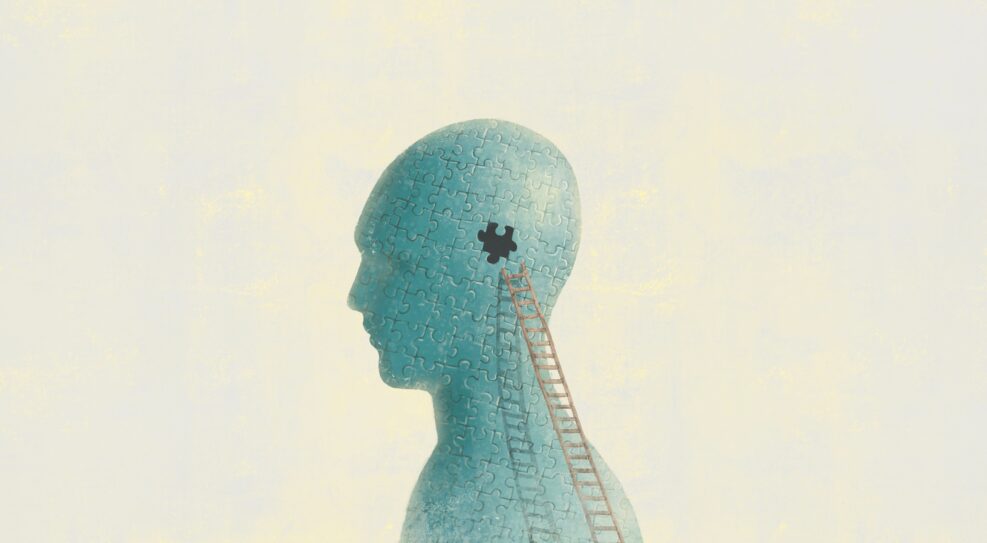
Michael Egnor


Are IVF Human Embryos “Children”? A Recent Court Decision
Neurologist Steven Novella claims that the Alabama Supreme Court ruling that they are “children” under the law “essentially referenced god”
Why Can’t Our Memories Be “Stored” in the Brain?
The image of storing and erasing memories is popular due to computer technology but it is not relevant to how the human mind works
Why Doesn’t God Just Do Something Dramatic to Prove He Exists?
The Divine Hiddenness argument for atheism, espoused by Matt Dillahunty, is that, if a perfectly loving God existed, reasonable unbelief would be impossible
My Reply to Free Will Deniers: Show Me
It is helpful to consider the question in this way—not “do we have free will?,” but rather “what does it mean to believe we don’t have free will?”
Where, Exactly, Is Memory Stored in the Brain?
The hippocampus of the brain is important for memory formation but memories are immaterial and are not really “stored” anywhere
What Christof Koch Misunderstands About the Mind and the Brain
In his revealing interview at Closer to Truth, the Allen Institute neuroscientist, though he doubts physicalism, attributed subjective experiences to “brains”
Leading Neuroscientist Wavers on Physical View of Consciousness
On Closer to Truth, Christof Koch said last month, “Consciousness cannot be explained only within the framework of space and time and energy, but we need to postulate something additional”
Why Free Will Denial is Self-Refuting
If free will deniers are right, their denial of free will is just a biological ink stain.
How Could Human Consciousness “Evolve”?
Human consciousness entails a unique human ability to think abstractly .
Israel, Free Will, and the Problem of Evil
If determinism is true, then we have no free will. We are nothing more than meat machines.The events of the past week in Israel have left the civilized world reeling. Hamas has killed more than 1,200 Jewish innocents in the most violent eruption of anti-Semitism since the Holocaust, and it seems likely a war will follow that will soon kill thousands more innocent people. As we ponder and pray over this mass slaughter, it is worthwhile to reflect for a moment on what these events tell us about the ideological and scientific dogmas of the 21st century — about atheism, determinism and Darwinism. Are these dogmas true, and do they provide a meaningful understanding of man and of moral action? If atheism is true and there is no God, there is no Moral Lawgiver. The concept of Read More ›

Kenneth Miller on Consciousness and Evolution
Despite Miller's claims, neither human reason nor free will evolved because neither are generated by material processesKenneth Miller is a biologist at Brown University who has been very active in his written and vocal support for Darwin’s theory of evolution. He’s neither a materialist nor an atheist – he is a Catholic, and in being one of the rare Darwinists who doesn’t subscribe wholeheartedly to the materialist/atheist paradigm, he allows himself to be used as a token theist by the Darwinists. It helps his career, no doubt, but doesn’t advance the truth. Not an admirable place to be. Miller’s New Book and What it Misses In his 2018 book The Human Instinct: How We Evolved To Have Reason, Consciousness, and Free Will, Miller manages a feat uncommon even for Darwinists – even the title of the Read More ›

Sean Carroll: “How Could an Immaterial Mind Affect the Body?”
The well known physicist thinks free will is nonsense. But has he investigated the classical understanding of causation?Sean Carroll is a theoretical physicist at Johns Hopkins University who takes an atheist and materialist philosophical perspective on nature and on science. I have disagreed with him often — I’m in no position to judge his scientific acumen, but his philosophical acumen leaves a lot to be desired. An example of this is a question he asks in a recent documentary about free will (which I haven’t watched yet). In the trailer for the movie, Carroll asks, How in the world does the immaterial mind affect the physical body? Carroll’s denial of libertarian free will is based on this question, and of course, he believes that the immaterial mind does not exist and, if it did exist, could not Read More ›

Mathematics Can Prove the Existence of God
Atheist biologist Jerry Coyne finds that difficult to believe but it’s really a matter of logicThis story was #3 in 2022 at Mind Matters News in terms of reader numbers. As we approach the New Year, we are rerunning the top ten stories of 2022, based on reader interest. In “Mathematics can prove the existence of God” (July 31, 2022), neurosurgeon Michael Egnor offers this thought: Because mathematics can show infinity, eternity, and omnipotence, it can only have proceeded from a mind with those characteristics. That’s God. In a recent post, atheist biologist Jerry Coyne takes issue with a commenter who asserts that God exists in the same sort of way mathematics exists. Here’s the analogy the commenter offered, as quoted by Coyne: Think of numbers for example, or mathematical equations, these are metaphysical things, Read More ›

Is God Just a “Hypothesis” Like the Big Bang?
Our friend and interlocutor Edward Feser takes exception to the title of Stephen Meyer ’s recent book, The Return of the God Hypothesis. Dr. Feser writes: With all due respect, the phrase “the God hypothesis” gets my hackles up. If X is something on which the world might merely “hypothetically” depend then X isn’t God. An argument gets to God only if it establishes the reality of an X on which the world couldn’t fail to depend. Hence arguments that present theism as a “hypothesis” are – qua arguments for theism – time-wasters at best and indeed cause positive harm insofar as they yield a distorted conception of God and his relation to the world. That is not to rule Read More ›

Is Consciousness a “Controlled Brain Hallucination”? No.
Anil Seth explains away consciousness away using fashionable terms like that. As a pediatric neurosurgeon, I know from clinical experience that he is wrongPhilosopher David Chalmers famously divided the problem of understanding how consciousness is related to the brain by distinguishing between the easy and hard problems of consciousness. The easy problem of consciousness is typically faced by working neuroscientists — i.e., what parts of the brain are metabolically active when we’re awake? What kinds of neurons are involved in memory? These problems are “easy” only in the sense that they are tractable. The neuroscience necessary to answer them is challenging but, with enough skill and perseverance, it can be done. The hard problem of consciousness is another matter entirely. It is this: How can first-person subjective experience arise from brain matter? How do we get an ‘I’ from an ‘it’? Compared with Read More ›

Atheists Who Scold Us on Morality Acknowledge God’s Existence
For example, every time internet-famous atheist P. Z. Myers scolds humanity on morality and immorality, he demonstrates the pointP.Z. Myers detests challenges to his atheism based on the reality of Objective Moral Law: There is a common line of attack Christians use in debates with atheists, and I genuinely detest it. It’s to ask the question, “where do your morals come from?” I detest it because it is not a sincere question at all — they don’t care about your answer, they’re just trying to get you to say that you do not accept the authority of a deity, so that they can then declare that you are an evil person because you do not derive your morals from the same source they do, and therefore you are amoral. It is, of course, false to declare that someone Read More ›

Philosopher: I’m Neither Me, Myself nor I… Yet I Give Interviews!
Theoretical philosopher Thomas Metzinger tells his interviewer “Nobody ever had or was a self. Selves are not part of reality.”It’s remarkable that given the abysmal logical state of modern neuroscience, modern philosophy of mind seems to be in a heated contest to be even more absurd. Secular meditation teacher Michael W. Taft interviewed leading theoretical philosopher Thomas Metzinger. Here is one set of Taft’s and Metzinger’s questions and answers, and my observations: Michael W. Taft: You’ve written at great length about the experience of selfhood in human beings. So let’s start off by asking, What is the self? Thomas Metzinger: The first thing to understand, I believe, is that there is no thing like “the self.” Nobody ever had or was a self. Selves are not part of reality. Selves are not something that endures over time. The first Read More ›

Yes, Spiders Dream — But That Doesn’t Make Them Leggy People
We don’t know where on the tree of life “mind,” in the most basic sense, begins. It might include bacteria but not virusesA recent research article from Germany, which has made quite a splash in the popular press, raises some very interesting questions about animal minds. Animal behaviorist Daniela C. Rößler and co-authors studied 34 young spiders while they slept and found that their eye movements seemed analogous to the eye movements of human beings and other higher animals that occur during REM sleep and are associated with dreaming. They pointed out that this seems to suggest that arachnids may have mental states and dreams that are more akin to those of human beings then previously thought. The article, published in the Proceedings of the National Academy of Sciences, is open access. The research is fascinating in its own right but I Read More ›

Mathematics Can Prove the Existence of God
Atheist biologist Jerry Coyne finds that difficult to believe but it’s really a matter of logicIn a recent post, atheist biologist Jerry Coyne takes issue with a commenter who asserts that God exists in the same sort of way mathematics exists. Here’s the analogy the commenter offered, as quoted by Coyne: Think of numbers for example, or mathematical equations, these are metaphysical things, that have not been created, however were discovered. The number 7 was the number 7 before anything at all came into existence. This is also true concerning the nature of God. He is not some material being that has come into existence, he is like a number that has always existed, (and by the way nobody will deny this logic with the number, however when someone mentions God a problem occurs). Jerry Read More ›
